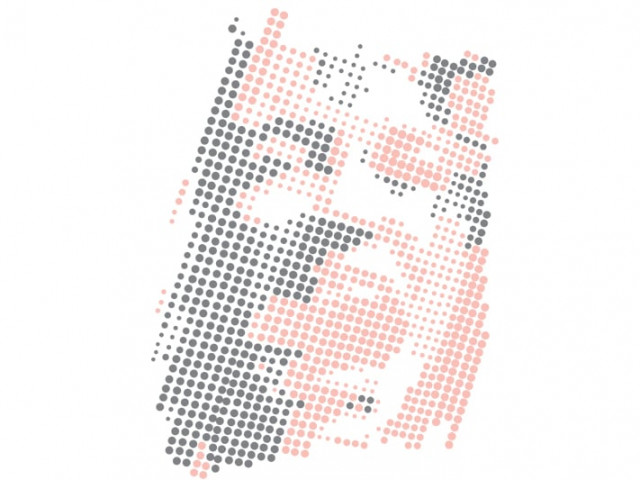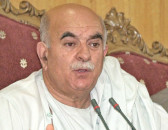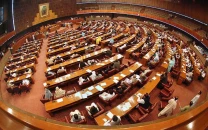In Pakistan, education is no shield against female violence
Educated, urban women also prone to domestic abuse; legislation continues to be stalled.

In Pakistan, education is no shield against female violence
“I‘m 29, married and have a son, but whenever I look back, I remember my father as a man with rage in his eyes and a shoe in his hand, hitting my mother mercilessly,” recalls *Ahmer Ali.
“She clung to his leg, pleading that he let go, promising that she’ll never ask again why he was late from work,” Ali adds.
Ali’s father stopped hitting his wife, an educated, urban Pakistani woman, once Ali and his siblings grew up. But the effects of the violence linger on in the family.
Ali confesses to having anxiety and self-esteem issues and has hit his wife twice in their three years of married life.
This is not an anomaly. According to psychologists, children who witness their mothers being hit are more prone to behavioral problems and are likely to repeat the cycle of violence with their own spouses.
Endemic violence
Ali’s story resonates with thousands of women in Pakistan who continue to face violence and abuse, as the world celebrates the International Day for the Elimination of Violence against Women on November 25.
A report titled ‘Violence against Women (VAW) in Pakistan — a qualitative review of statistics 2011’ by the Aurat Foundation says, “Treating domestic violence as a private affair has given protection to perpetrators and has led to the victimisation of women.”
Women find themselves beaten and then threatened of divorce and more violence. The report revealed that a total of 8,539 cases of violence against women were reported in Pakistan in 2011.
Urban phenomenon
It’s not just uneducated women who suffer at the hands of violent spouses. A silent but large number of educated Pakistani women also go through this trauma.
“In some ways, the educated and rich woman is more of a coward. She has more to lose,” says Najma Khan, 42, who got a divorce four years ago and is now re-married.
“When I was thinking of leaving my husband, a foreign-educated man who’d hit me every few months without reason, my friends would tell me I would miss out on the social respect that marriage is giving to me. But I came to a point where it was no longer about social respect. It was about self-respect,” Khan adds.
Therapist Anees Fatima Hakeem at PNS Shifa, Karachi concurs.
“Any abuse is a form of punishment. It’s all about power and control. Even educated women get trapped in this is because the men are not abusive all the time. They can be very good providers and charming. Often, the woman blames herself. A common tactic for the guy is to behave like it never even happened, or tell her she was the reason it happened,” Hakeem says.
Domestic violence, however, not only affects a woman’s psychological health but also gives rise to long-term stress-related health issues like arthritis, hyper-tension and cardiovascular diseases.
“[My husband] feared it would become a police case, so he never let me see a doctor after I was beaten. I would feel abdominal tenderness and bleed from my mouth for days. I’m afraid my body has suffered long-term consequences,” adds Khan.
Violence against women takes many forms, including domestic violence, sexual abuse, human trafficking and traditional practices like female genital mutilation, dowry-related violence and honour killings.
The Aurat Foundation reported 1,988 murders or honour killings of women in 2009.
Investigations by the Ansar Burney Trust also shows cases of women seeking divorce or separation who were subject to mutilation, such as having their noses, ears and hair cut off by angry husbands.
Legislating against violence
Policy makers are aware of the numbers but policymaking is slow.
The lower house of parliament passed the Domestic Violence (Prevention and Protection) Bill in 2009 but it failed to make it past the upper house.
The bill was retabled in the Senate in February, 2012, but was met with a deadlock yet again.
After the passage of the 18th Amendment though, the issue has come under provincial jurisdiction.
Maliha Zia, a lawyer who is an expert on gender and law, says, “The Domestic Violence Bill in Sindh has moved from the Home Department and is with the law ministry. It’s been approved by the chief Minister for tabling in the Sindh Assembly. However, it’s waiting to be tabled.”
“Pakistan must prioritise prevention of violence against women not just on paper but in actual implementation, and pass a law on domestic violence with punishments for those who commit violence against women. It must focus on implementation of existing law and not allow perpetrators to get away. There must a policy of no tolerance of violence against women,” Zia adds.
Published in The Express Tribune, November 25th, 2012.



















COMMENTS
Comments are moderated and generally will be posted if they are on-topic and not abusive.
For more information, please see our Comments FAQ